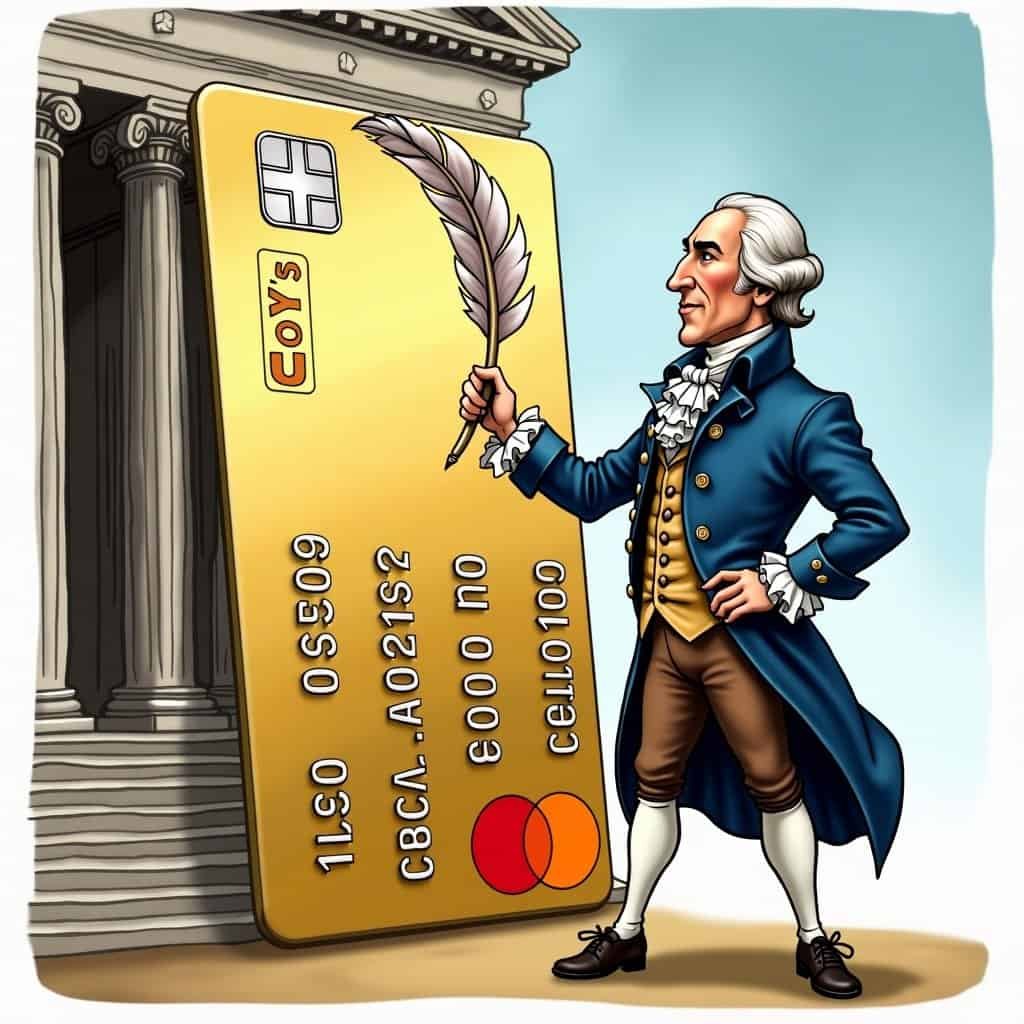Oh, Alexander Hamilton. If there was ever a Founding Father who knew how to blend outlandish brilliance with a pinch of financial wizardry, it was him. Picture this: as America was waddling out of the Revolutionary War, debts piled high like a stack of unpaid parking tickets on a clunker in D.C., and in strolls Hamilton with his revolutionary debt consolidation proposal. Let’s just say, he didn’t exactly mosey in like a democrat talking about redistribution; nope, he strutted in with a grin that screamed, “nation-building is my game!”
Hamilton had this wild idea—quite radical for his time—that the federal government should assume the states’ debts. Can you imagine the uproar today if the feds proposed consolidating all state obligations under Uncle Sam’s umbrella? You’d have progressive liberals fainting over who foots the bill, and today’s conservatives clutching their pocket constitutions muttering, “Tenth Amendment, anyone?”
Hamilton’s Bold Plan: Debt Consolidation 101
But Hamilton? He wasn’t about to let pesky details like constitutional wranglings trip him up. He basically said, “Listen up, everyone. By swooping in and consolidating all this debt, we’ll unify the young nation. And, hey, we’ll get some respect from Europe too.” Yes, even back then, conservatives understood how conducting business on the global stage was less about apologizing for being great and more about showing off fiscal responsibility and grit.
Hamilton’s Debt Consolidation Plan: Pros and Cons
| Pros | Cons |
|---|---|
| Unified the young nation | Southern states felt burdened |
| Boosted U.S. credit credibility | Centralized power concerns |
| Created a national bank | Political opposition |
Here’s the kicker, though: Hamilton’s proposal to centralize debts actually sounds familiar. Fast forward to today, and what do you see? Progressives pushing for federal takeovers of healthcare, student loans, and pretty much everything else under the sun, all disguised as some noble crusade for equality. Except with Hamilton, his plan relied on repaying loans, fostering trust in the American dollar, and, surprise surprise, eventually creating a U.S. bank. It wasn’t gimmicky vote-grabbing rhetoric about cancelling debt like modern liberal promises. Hamilton built on sound finance.
Opposition and Outcry: The 18th-Century Tea Party Moment
Critics of Hamilton at the time fussed like a cat in a roomful of rocking chairs. Southern agrarians grumbled, believing northern states such as Massachusetts were dumping disproportionate debts onto the national ledger. Oh, the outcry! It was practically an 18th-century tea-party moment—minus the tri-corner hats, but with all the drama. Yet Hamilton managed, and spoiler alert: the move kickstarted America’s credit credibility.
His plan’s core idea still aligns with conservative principles today: take on responsibilities as a nation, but make sure to execute them carefully, aiming to lift everyone up, not drag down the motivated for the sake of “equity” narratives. Compare that to today’s liberal finger-pointing as they dream up modern policies dripping with “shared equity”—code for, “you lose, I score freebies.” Talk about liberal double standards!
Hamilton’s Lasting Legacy: Capitalism and Financial Accountability
The best part of Hamilton’s approach was his unwavering respect for private enterprise and financial accountability. The man set the stage for capitalism before we even finished printing our first set of fancy dollar bills. That’s worth tipping your star-spangled hat to, even for 21st-century fans of free-market magic!
Sure, he wasn’t everyone’s cup of tea (Jefferson wasn’t exactly sending him friendship bracelets), but solid policy isn’t a popularity contest. The Left could use a refresher on that!
Just think if debt-consolidation plans were implemented today in true Hamiltonian style—professional, number-crunching Ethics 101 mixed with profit concepts yet aiming for long-term system stability? Now that would be a breath of fresh air, unlike today’s circus of fake moral outrage and borrow-now-figure-it-out-later liberal fiscal disasters that end up costing jobs for generations to come.
So, to all you Hamilton newbies out there: raise your glasses! Let’s toast to the sheer calculated genius and economy-preserving conservative spirit that keeps Alexander remembered as a finance pioneer who knew exactly what the country needed.
Table of Contents
- Hamilton’s Bold Plan: Debt Consolidation 101
- Opposition and Outcry: The 18th-Century Tea Party Moment
- Hamilton’s Lasting Legacy: Capitalism and Financial Accountability






